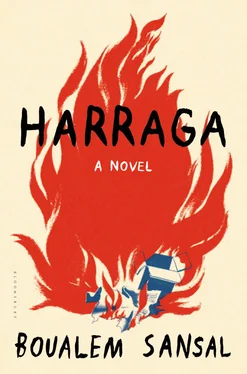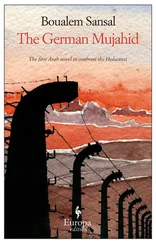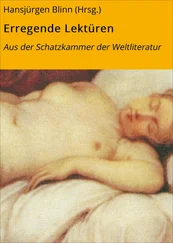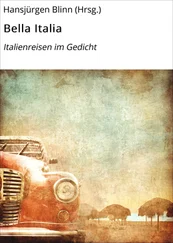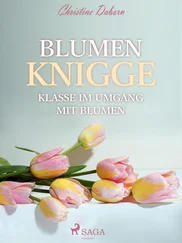— Are you heading north?
— Yes, to Tamanrasset, the Assihar begins there at the next moon.
— Can we travel with you?
— This is our route, but the Sahara belongs to those who know it.
— So we can come?
— If that is the will of Allah.
— What is Assihar ? asks the camera.
— It is a festival that takes place once a year for all the Tuareg peoples, the Azdjer, the Ahaggar, the Aouellimiden, the Mourines, the Imohaghs, from the seven corners of the earth they come, from Mauritania and Sudan, from Algeria and Senegal, from Libya, Niger, Mali, Côte d’Ivoire, Burkina-Faso, from as far away as the distant empire of Tibesti!
— It must be magnificent!
— It is tradition, we barter, we talk, we celebrate our ancestors. We come from el djanoub, from the south, from Timbuktu, and you?
— From Mali.
— And you?
— From Paris.
— What do you have to barter?
— Nothing, a little hope, a little friendship whenever possible, we are going to Bordj Badji Mokhtar to visit a dear friend.
— Are your papers in order?
— Eh… why?
— The Algerians are wary of foreigners, they do not like us, they kill us whenever they can or else they demand twenty bales of rare documents and a king’s ransom.
— So what do you do, how do you manage?
— The Sahara is our home for as far as it extends beneath the sun, we need no papers, they are the ones who should have to tell us who they are, where they are from.
The caravan is making steady progress. The camels bray just for the pleasure of hearing their voices, the Sahara has long since ceased to amaze them. Travelling alongside them, our heroes become more confident, Ahmadou and Abu-Bakr regain their strength. They make friends with young lanky Tuareg men born on the move and hence unfamiliar with the changing world. They talk to them about Europe, about the pleasures of life, the joy of love and of things that an eternal nomad can scarcely imagine: about the métro, social security, sports cars, snow, cinemas, Christmas holidays, microchips. But they are talking simply for the pleasure of talking, no one needs to understand. Question: What do they barter over there, in Europe? Curious, the camera has drawn nearer. Answer: There, there is everything, you don’t want for anything.
At the Algerian border, our friends go their separate ways.
— You have arrived, my brothers, we must travel on to Tamanrasset.
— But we are going to Bordj Badji Mokhtar. Where is it? We can’t see anything.
— It is right before your eyes.
— But there is nothing here.
— It is a mere two days’ walk towards the west.
— Thank you, noble cheikh.
— If the soldiers challenge you, tell them you are going to meet hajj Saïd le Chanceux, they will escort you and give you food and drink.
Bordj Badji Mokhtar — or BBM as we northerners call it — is a large town which grew from nothing and grew too quickly. It is rampant chaos: houses half-finished or half-demolished, streets little better than rutted dirt tracks, ramshackle trucks, camels on their last legs, roving goats, rabid dogs, corrupt cops, all covered over with thick dust imported from the north.
The meeting point is a depot belonging to the aforementioned hajj Saïd, aka Bouzahroun, aka ‘Lucky’, a man who is never seen without his night-vision goggles and his state-of-the-art mobile phone. He reminds me of sidi Saïd Bouteflika — also nicknamed ‘Lucky’ — the brother and special adviser to the president of the People’s Democratic Republic of Algeria, a man who is never seen without his ski goggles and his walkie-talkie, but I suppose it’s not a crime to look like someone else. The camera, which has been roving around the town, quickly finds out that the mega-rich tycoon is a former terrorist who plotted with the high command and, for his exceptional services, was awarded a monopoly on human trafficking from BBM as far as Bamako and Niamey. Sidi Saïd has a fleet of a hundred trucks, a private militia numbering a thousand pistoleros , and, in case of war, has the right to mobilise the army and the customs service. When he is planning a particularly big coup, he calls one of a list of numbers in Algiers until he reaches the top. The camera did not hesitate, it was determined to discover what was really going on. It got its answer from an old man sitting lazily at the foot of a half-built wall playing an imzad — a violin with a single string stretched across a turtle shell. The camera pulled no punches.
— Have you any idea what’s going on here?
— Go to Laoni and you will understand.
— Where is that?
— Three days’ walk, south-west of here.
— Laoni?
— Yes, Laoni, the gold mine.
— What about it?
— The gold extracted from the mine is transported to Tamanrasset and from there it’s sent on to Algiers.
— I don’t see the problem.
— The gold never arrives in Tamanrasset; your friend Saïd commandeers it for his friends in high places.
— Is this true?
— And that’s not the whole story: Algiers denies that there is a secret American military base in the area and so Saïd is told to supply it on the quiet. He has dollars coming out of his arse.
— How do you know all this? No one in Paris has heard anything about it.
— Why wouldn’t I know? I occasionally work as a guide for Saïd and the Americans.
Over the days that followed, other harragas arrived at Saïd’s place, and eventually there were a dozen of them. Ahmadou and Abu-Bakr lost their starring roles in the documentary. The camera fell upon the newcomers, beardless boys with big eyes, a Malian, a Nigerian, a Ghanaian, two kids from Togo, one a pregnant girl, a Sudanese boy, an Ivoirian, a Senegalese, a Congolese and a Guinean, the last three having travelled the same route via Gao, the second largest trafficking hub in the Sahel after Tamanrasset. They all told the same story, they were all looking for the promised land. The tragedy — though they did not yet know this — was that they have come too far to get there in this life.
While they waited for the people smuggler to arrive, Saïd set them to work for the customs inspector. They repaired his roof in exchange for some bread and a little water. ‘A man must earn his keep,’ Saïd says to the camera, a smiling Good Samaritan. The camera takes the opportunity to rile him a little.
— How much do you make on the transfers to Tarifa? They say you bleed these people dry and very few make it there alive.
— That’s just malicious gossip, I do this out of Muslim charity. They want to have a little fun, the little black bamboulas , so I help them out.
As he says this, the people smuggler jumps down from his Land Rover. He takes off his keffiyeh and drinks down mint tea. Oh, he looks evil! He is just back from an expedition he is reluctant to discuss. The camera insists. ‘I was on holiday with friends in Tamanrasset,’ he swears, looking greedily at his new clients. In the camp, there is much talk about a group of Ugandan mercenaries who have been turned over to Gaddafi who, bored as a dead rat, dreams of opening up a new route. It’s crazy how much goes on in the middle of the desert.
Dawn the next morning, the immigrants are woken with a boot, loaded on to the back of the truck, covered with a tarpaulin, then they’re off. The camera has rented an air-conditioned 4x4, a driver and a guide. The voiceover does not mention the fact, but it clearly belongs to Saïd. The Toyota drives behind or in front of the truck, as filming dictates. The little convoy raises clouds of dust. They take no precautions, they drive at top speed, they have no need to worry since everywhere within a five-hundred-kilometre radius is controlled by Saïd. At military checkpoints, they are greeted with honours. Further north, as they enter another private fiefdom the truck pulls off the road before it reaches the checkpoints. Regardless of the faction they’re allied to, truckers stick together and so oncoming trucks flash their headlights to warn of an upcoming roadblock. Once means danger is 1km ahead, twice means 2km ahead and so on. Sometimes they stop, regroup and draw up a plan of battle. After the first few deaths, they negotiate over a pot of mint tea. It is perfectly timed and the Toyota, pretending to be a tourist who has broken down, manages to film the magnificent jamboree that takes place around the fire in the shadow of a cave.
Читать дальше
